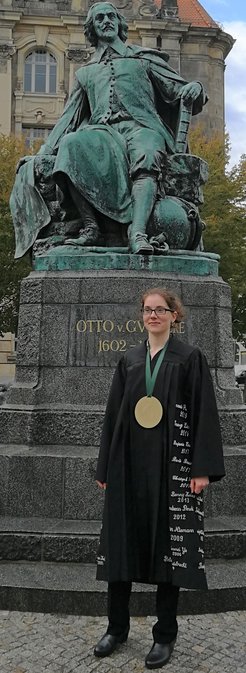Jennifer Uebbing successfully defended her PhD thesis
Research focused on the power-to-methane process and the pressure swing adsorption

Jennifer Uebbing, one of our doctoral researchers, successfully defended her thesis on the 7th of May 2021. She joined the Max-Planck Institute in February 2017 and the IMPRS in August 2017. At the IMPRS she was working in the Group "Mathematical Algorithmic Optimization". The title of her PhD thesis is "Optimization of Power-to-Methane Processes with Respect to Exergy on System Level".
The research of Jennifer Uebbing can be divided into two main topics. On the one hand, she focused on the Optimization of the power-to-methane (PtM) process on the plant level concerning efficiency and process costs. This optimization included the identification of the right technologies to perform tasks within the process (e.g. catalytic or biological reactor for the task of the methanation reaction) to build an overall optimal process for different boundary conditions. Furthermore, the heat exchanger network was optimized along with the process units. This work included building a mathematical model, which can represent the different technologies as unit models, the heat exchangers, and discrete choices between the technologies. The challenge here was to make the final model solvable via MINLP solvers. The result of this work allowed for analysis of the optimal PtM process with respect to different product gas specifications and electrolyzer types. Moreover, methane could be compared to other chemical energy carriers, such as methanol.
Congratulations!












